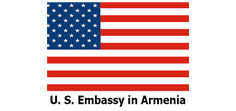If you are in a hurry: Brief overview
The Ministry of Foreign Affairs of Azerbaijan announced that the International Court of Justice of the United Nations reaffirmed the legitimacy of setting up a checkpoint in the Lachin Corridor. Baku also claimed that the ICRC freely carries out humanitarian activities along the Lachin road, and Armenian citizens move freely.
The Fact Investigation Platform checked these claims and found them to be manipulative. The International Court of Justice did not reaffirm the legitimacy of setting up a checkpoint in Lachin, and the ICRC announced on July 25 that it is not able to deliver humanitarian goods to the people of Nagorno-Karabakh.
***
The Ministry of Foreign Affairs of Azerbaijan, referring to the interview given by the Prime Minister of Armenia Nikol Pashinyan to the French “Le Monde”, issued a statement on July 25, which says that the International Court of Justice rejected Armenia’s requests, stating that the deployment of checkpoints in the Lachin corridor was legitimate.
“The unanimous rejection of Armenia’s requests by the International Court of Justice on July 6 once again confirmed that the establishment of the checkpoint by Azerbaijan is a sovereign and legitimate decision,” the Foreign Ministry of Azerbaijan stated.
In fact, the Azerbaijani Foreign Ministry distorted the content of Armenia’s demand and the decision of the International Court of Justice.
In December 2022, Azerbaijanis posing as eco-activists blocked the Lachin corridor by placing tents there. Since that day, the Stepanakert-Yerevan highway has stopped functioning, effectively depriving the population of Nagorno-Karabakh of communication with the outside world. The Fact Investigation Platform had previously revealed that the Azerbaijanis posing as eco-activists were actually representatives of an organization affiliated with the Azerbaijani government.
On February 22, 2023, the International Court of Justice indicated a provisional measure directing Azerbaijan to unblock the Lachin road. The International Court of Justice ordered Azerbaijan to take all necessary measures to ensure unimpeded movement of persons, vehicles and cargo along the Lachin Corridor in both directions. However, the only road connecting Nagorno-Karabakh to the Republic of Armenia remains closed. Baku did not comply with the order of the Court.
On April 23, Azerbaijan installed a border checkpoint on the bridge built on the Hakari river. The eco-activists left, but the road remained closed. In this regard, Armenia again appealed to the International Court of Justice, requesting to make an addition to the Order of February 22, applying a provisional measure, and demanding that Azerbaijan remove the personnel stationed in the Lachin corridor. The court rejected this request, but reaffirmed the order of February 22. In particular, Clause 28 says:
“In its fourth Request, Armenia indicates that the “so-called ‘protests’” are no longer taking place. It claims instead that there is, at present, disruption in movement along the Lachin Corridor as a result of the establishment and operation by Azerbaijan of one or more checkpoints. The Court considers that, even if it can be said, in light of these developments, that there has been a change in the situation that existed when the Court issued its 22 February 2023 Order, the fourth Request still concerns allegations of disruption in movement along the Lachin Corridor. The consequences of any such disruption for persons of Armenian national or ethnic origin would be the same as those noted by the Court in the Order of 22 February 2023. Moreover, the measure that the Court imposed in that Order applies without limitation to the cause of the impediment of such movement.”
The Court also reaffirmed the need for effective implementation of the measure indicated in its Order of February 22 (Clause 30).
Thus, the Ministry of Foreign Affairs of Azerbaijan is manipulating when claiming that the rejection of the International Court of Justice confirms the legitimacy of the establishment of the checkpoint. The justification for rejecting Armenia’s request to supplement the Order of February 22 is that the circumstances of the closure of the corridor have not changed and, according to the court, regardless of the reasons for the road closure, it should be opened, which is already reflected in the Order of February 22. The Court did not refer to the legitimacy of the checkpoints.
Activities of the Red Cross
The aforementioned statement of the Ministry of Foreign Affairs of Azerbaijan also refers to the activities of the International Committee of the Red Cross.
It is noted that ignoring the activities of the International Committee of the Red Cross in the region and the fact that dozens of Armenians cross the checkpoint daily in both directions is “an attempt by the Prime Minister of Armenia to manipulate international public opinion.”
Meanwhile, on the same day, July 25, the Red Cross issued a statement warning that despite persistent efforts, the organization is unable to provide humanitarian assistance to the civilian population of Nagorno-Karabakh: “People lack vital medicines and essential items such as hygiene products and baby food. Fruits, vegetables and bread are becoming scarcer and more expensive. Other food products such as dairy products, sunflower oil, grains, fish and chicken are not available.”
The organization also reported that the last time the ICRC was allowed to bring medical items and essential food items into the area was several weeks ago.
In total, the Red Cross has evacuated more than 600 patients since December.
“With these convoys blocked, our concern is that the humanitarian situation will further deteriorate,” the ICRC statement reads.
The transfer of patients in critical condition through the mediation of ICRC does not in any way confirm the free movement of residents of Nagorno-Karabakh, as noted by the Ministry of Foreign Affairs of Azerbaijan.
And in no way does that indicate that Armenian residents can visit Nagorno-Karabakh after the blockade.
The fact that the Lachin corridor is closed is confirmed by the Court Order of July, which once again obliges Azerbaijan to open the road.
Moreover, international human rights organizations are also referring to the blockade of Nagorno-Karabakh. Thus, on July 25, Freedom House urged Azerbaijan to allow the ICRC to provide vital humanitarian assistance to Nagorno-Karabakh and to immediately work to ensure freedom of movement by opening the Lachin corridor: “The deteriorating humanitarian situation in the region has deprived civilians of life-saving medication and essential goods. We urge democratic governments to exert pressure on Azerbaijan, calling for an end to the deliberate starvation of innocent civilians,” Freedom House tweeted.
Thus, the aforementioned evidence shows that the claim of the Foreign Ministry of Azerbaijan that the Prime Minister of Armenia ignores the work of the ICRC and the movement of dozens of citizens through the Lachin Corridor is false and manipulative. Both the International Court of Justice, the Red Cross, and other international human rights organizations report on the closure of the corridor and the ongoing deterioration of the humanitarian situation.
Loosineh Voskanyan

 FACTOMETER
FACTOMETER











